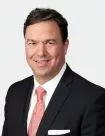- within Food, Drugs, Healthcare and Life Sciences topic(s)
- in North America
- within Tax topic(s)
- in North America
Key Takeaways
- The U.S. Department of Justice (DOJ) announced its largest Health Care Fraud Takedown in history: (1) criminal charges against 324 criminal defendants with an alleged $14.6 billion in alleged fraud; (2) civil charges against 20 defendants for $14.2 million in alleged fraud; and (3) civil settlements with 106 defendants, totaling $34.3 million.
- The Takedown spans a diverse set of health care fraud schemes, including durable medical equipment, marketing, wound care, prescription opioids, telemedicine and genetic testing.
- The DOJ announced the creation of a Health Care Fraud Data Fusion Center, emphasizing its determination to fight the most complex fraudulent health care schemes and leverage data in its efforts.
The DOJ announced on June 30 an unprecedented Health Care Fraud Takedown resulting in criminal charges against 324 defendants (including 96 doctors, nurse practitioners, pharmacists and other licensed providers), with an alleged $14.6 billion in intended loss – more than double the prior record of $6 billion. The Takedown also included civil charges and settlements against 126 defendants, totaling $48.6 million. Additionally, the DOJ noted that more than $4 billion in fraudulent claims were prevented by the Centers for Medicare & Medicaid Services (CMS) and that CMS had suspended or revoked the billing privileges of 205 providers. The Takedown was led by the DOJ's Health Care Fraud Unit in coordination with the Department of Health and Human Services, Office of Inspector General (HHS-OIG), the Federal Bureau of Investigation (FBI), the Drug Enforcement Administration (DEA), and other federal and state law enforcement agencies.
In announcing the Takedown, senior law enforcement officials signaled that health care fraud was an area of immense focus and aggressive enforcement for this administration. Attorney General Pam Bondi stated that this was a "record-setting Health Care Fraud Takedown," and that "this administration will not tolerate criminals who line their pockets with taxpayer dollars while endangering the health and safety of our communities." The Secretary of HHS, Robert F. Kennedy Jr., commented that his agency would work aggressively with law enforcement to eliminate pervasive health care fraud that drives up costs. Similarly, FBI Director Kash Patel stated that the Takedown "demonstrates our commitment to pursuing those who exploit the system for personal gain." Further, the Head of the DOJ's Criminal Division, Matthew R. Galeotti, stated that "we will continue to use every tool at our disposal to protect the integrity of our health care programs for the American people."
Targeted Schemes
Transnational Criminal Organizations – As part of the Takedown, the DOJ announced enforcement actions against multiple Transnational Criminal Organizations (TCOs) resulting from alleged transnational activity in Estonia, Pakistan, and the United Arab Emirates. The TCO enforcement actions involved alleged fraud related to durable medical equipment (DME), theft and deceptive marketing, and substance abuse treatment services.
Fraudulent Wound Care – Additional charges were brought against seven defendants, including five medical professionals, in connection with approximately $1.1 billion in fraudulent claims to Medicare and other health care benefit programs for fraudulent wound care. As alleged, certain defendants targeted vulnerable elderly patients and applied medically unnecessary care to these patients' wounds, allegedly receiving millions of dollars in illegal kickbacks from the billing scheme.
Prescription Opioid Trafficking – The Takedown also included 58 cases involving the alleged illegal diversion of more than 15 million pills of prescription opioids and other controlled substances. The DOJ noted that this enforcement represents coordinated action and a continuation of the Health Care Fraud Unit's approach to stopping drug trafficking organizations and their pharmaceutical wholesale suppliers.
Telemedicine and Genetic Testing Fraud – The DOJ also charged 49 defendants in connection with the allegedly fraudulent submission of $1.17 billion in claims to Medicare resulting from telemedicine and genetic testing fraud schemes. The DOJ noted that it continues to focus on DME cases, along with genetic testing and COVID-19 tests.
Conclusion and Next Steps
In terms of practical considerations and implications, individuals and entities in the health care space – especially those participating in federal health care programs such as Medicare or Medicaid – should remain extra vigilant to ensure compliance given the DOJ's aggressive enforcement efforts. Specifically, the DOJ announced its creation of a Health Care Fraud Data Fusion Center intended to leverage cloud computing, artificial intelligence and advanced analytics to identify emerging health care fraud schemes. Given this, there may be a greater number of health care fraud investigations resulting from analytics, as opposed to whistleblower suits or self-disclosures. Accordingly, health care companies should reassess their compliance programs to ensure robust oversight and minimize the risk of future enforcement actions.
The content of this article is intended to provide a general guide to the subject matter. Specialist advice should be sought about your specific circumstances.




